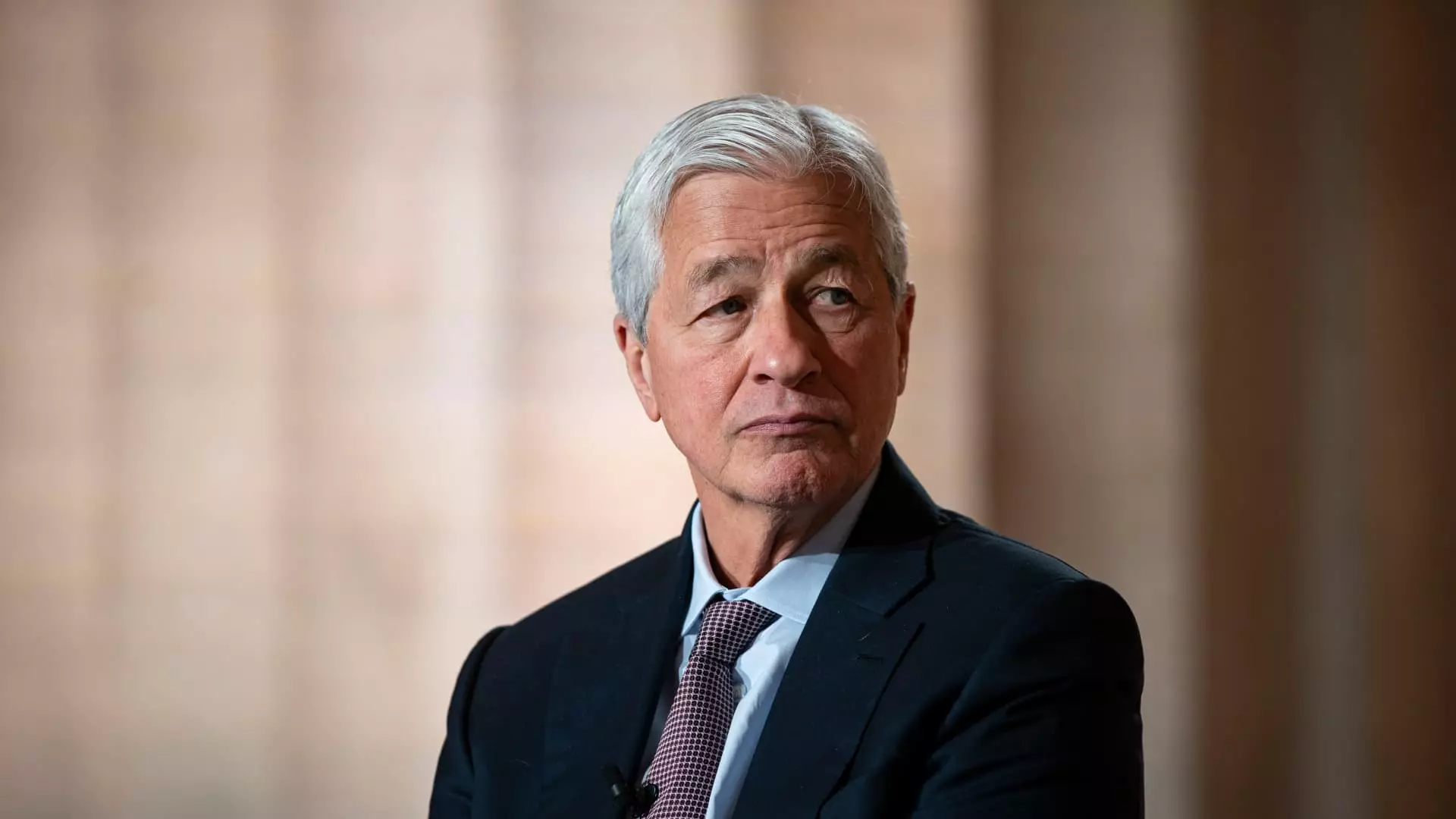In an unsettling turn of events that reverberates throughout financial markets, Jamie Dimon, the outspoken CEO of JPMorgan Chase, has crystallized fears long circulating among economists: the U.S. economy appears to be teetering on the brink of recession. Dimon’s commentary, coming amidst a volatile series of steep stock market declines, should serve as a stark wake-up call—not just for investors, but for an entire nation that has become increasingly detached from its economic realities. The era of whimsical optimism, spurred by robust growth and soaring stock values, may be giving way to a new age marked by painful downturns, driven predominantly by misguided trade policies.
As the trade war with China escalates, the reactions within the financial markets paint a dire picture of panic and uncertainty. Investors watched in horror as major stock indexes plunged significantly, igniting fears that financial markets are self-perpetuating engines of dread. Dimon’s observation that a staggering 2000-point drop in the Dow could create a feedback loop of anxiety is one that carries weight and substance. The pervasive fears of diminished investment portfolios—401(k)s and pension funds alike—could lead to cutbacks in consumer spending, further straining an already fragile economy. The sobering truth here is that when the markets start dictating consumer sentiment, we might encounter a spiraling cycle of economic contraction.
Escalation of Trade Tensions
Recent developments in the U.S.-China trade conflict add fuel to this already blazing inferno. China’s retaliatory measure of imposing an eye-watering 84% tariff on U.S. goods signals an impending trade disaster, with repercussions extending far beyond mere statistics. Such aggressive tactics are not just an assault on American exporters; they represent a broader debacle— one where American consumers may soon find themselves facing drastically higher prices for everyday goods. When we dissect Dimon’s assertion that markets are pricing ‘uncertainty,’ we arrive at a profoundly concerning realization: these uncertainties are not confined to financial forecasts; they echo in the lives of citizens who will directly experience the fallout of these policy decisions.
Dimon’s analysis rightly notes that the impacts of tariffs extend into every crevice of the economy. We face the stark reality of a dual-layered crisis—macro-level uncertainty affecting institutional decisions and micro-level turbulence affecting everyday spending. The challenge lies in understanding that these aren’t just abstract financial terms; they translate into crucial decisions made in households across the nation.
Mixed Signals from a Flawed Strategy
Interestingly, Dimon has previously voiced support for tariffs, presenting a dichotomy that is difficult to reconcile. As a leader in the financial sector, his nuanced stance of “getting over” tariffs laid the groundwork for future complications that we are now witnessing. The mere idea that a pinch of inflation could be an acceptable trade-off for national security seems alarmingly short-sighted now that we face tangible consequences. In truth, this perspective demonstrates a troubling disconnect between the corporate elite and the average citizen, rendering ordinary Americans vulnerable to economic insecurity without their consent.
Much of the blame can be attributed to the erratic nature of U.S. trade policy under the current administration—policies purportedly aimed at elevating national interests might just be undermining them instead. Dimon’s call for negotiation should resonate deeply with policymakers who are keenly aware that hasty and divisive trade maneuvers are jeopardizing not only economic growth but also international relationships that have historically benefitted the U.S. The real tragedy is that these negotiations could have been preemptively initiated to mitigate risk, yet the administration’s approach appears to be reactive rather than proactive.
In Search of Stability in Uncertain Times
On a hopeful note, Dimon emphasized the necessity for the Senate to confirm Fed Governor Michelle Bowman as vice chair for supervision. Such appointments could potentially herald a return to stability in the financial supervision landscape—a move that holds promise amidst widespread turbulence. Effective oversight could provide the type of bolstered confidence that markets desperately crave. With all eyes now fixated on whether the Senate will respect this urgent appeal, we can only await the outcome as we stand at a precarious crossroads.
The combination of escalating tariffs and declining consumer confidence might soon lead us into an economic abyss that few are prepared to navigate. The stakes have never been higher, and one can’t help but wonder when the leadership will finally acknowledge the depth of this crisis. The clock is ticking, yet we’re left wondering if any meaningful action will be taken before it spirals beyond our control.

Leave a Reply